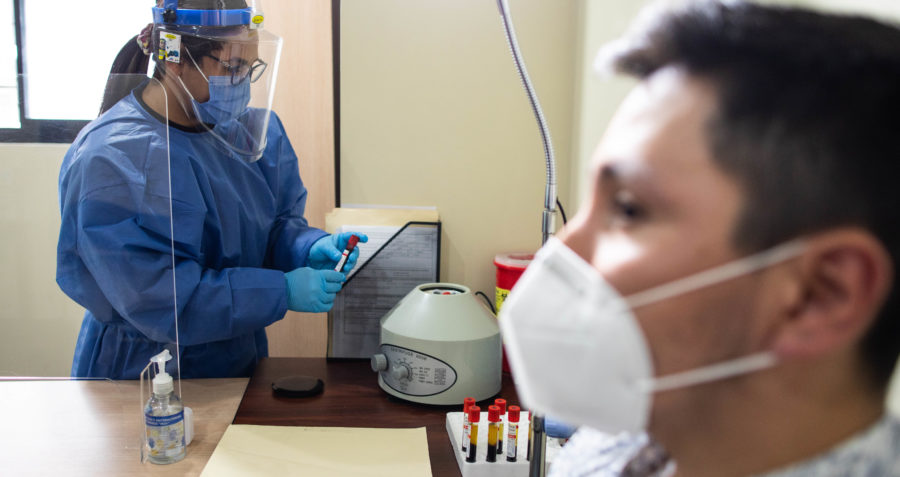A pandemic treaty that works for all: An open letter to the 75th World Health Assembly

An open letter to all parties engaged in the seventy-fifth World Health Assembly on 22-28 May 2022, as we push for a truly global treaty on pandemic prevention, preparedness and response.
We are writing to you as civil society organisations working in the area of global health, HIV/AIDS and other diseases in advance of the upcoming Seventy-fifth World Health Assembly (WHA) to ask for your support behind four key actions to ensure a pandemic preparedness and response framework, as well as a global funding and implementation mechanism, that truly works for all.
This WHA will be crucial in deciding the structure that any new international instrument on pandemic preparedness and response will take. However, as organisations working with some of the most marginalized communities worldwide, we are concerned that the current approach to negotiations not only neglects the needs of people in low and middle-income countries but will exacerbate existing inequalities. With this in mind, we would ask you to support these key elements of the new PPR instrument.
Taking forward existing pandemics’ health and community systems infrastructures, and lessons learned
This existing infrastructure and the substantial expertise and experience that already exists in the HIV response is the strongest base from which to build a future PPR instrument and mobilise additional resources to sufficiently combat any future pandemic.
Focus on equity, people-focused, and future-proof PPR solutions
We have observed with concern the uneven distribution of the COVID-19 vaccine; as in the initial years of the HIV pandemic, pharmaceutical companies have prioritised profits over human lives, denying lifesaving products to people in low and middle-income countries. Any international instrument developed must be able to address existing inequalities to prevent future pandemics, prioritising rights-based, person-centred approaches, focusing on equity and equitable access, technology co-creation and transfer, as well as creating larger ecosystems for developing and producing supplies.
Community responses prioritised as essential elements of health systems, and civil society and communities part of any new governance, financial and implementation mechanisms
As demonstrated during COVID-19, stronger accountability and engagement of communities and civil society in key decision-making processes and governance structures are critical for effective PPR. The role of community responses for health is essential in preventing, detecting, and responding to pandemics. At the implementation level, any new instrument must recognise community responses and systems as core components of an effective global PPR instrument, along with the funding required to deliver it. Community and CSO representatives also need to be engaged in the key decision-making processes and governance structures for any new PPR instrument, including permanent seats in its governance structures, with equal voting and financial support to enable civil society and community representatives to convene and consult with those they represent.
We would note with particular concern that civil society and community outreach by the INB has so far been wholly inadequate with short turn-arounds for CSO inputs, poor communication, and tokenistic engagement. We would recommend that the INB take immediate steps to expand their civil society engagement to wider community networks and representatives who need to have a voice in the negotiations, rather than restricting the main part of their engagement to those organisations that are in formal “official relations” with the WHO.
Make the Treaty binding and ensure accountability of all stakeholders
We also recommend that the new international instrument on pandemic preparedness and response is legally binding under international law to ensure the delivery of the instrument, and to provide the strongest protection to the most marginalised communities worldwide. There needs to be a strong accountability framework and regular reporting mechanisms to track progress and develop lessons learnt.
SIGNATORIES
- Frontline AIDS
- GFAN
- AVAC
To sign your organisation on to this open letter, please email plawrance@frontlineaids.org.
Tags
COVIDCOVID-19PPRWHA75WHO

